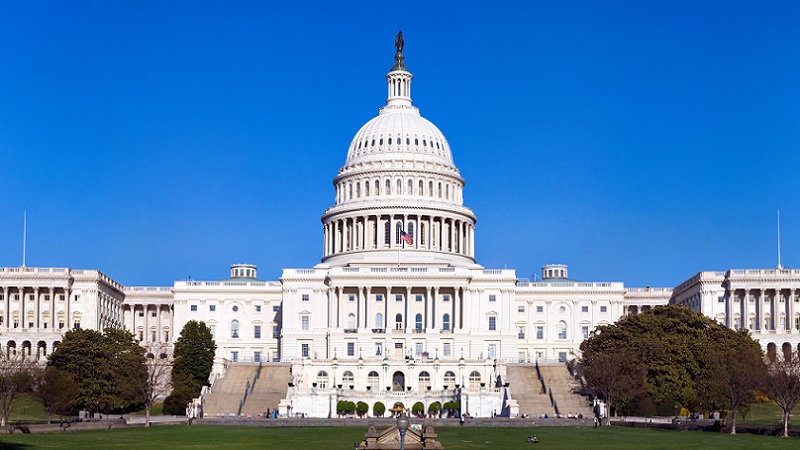China hardly figures in the US election campaign, but it really should
April 21 2016

By Elena Collinson
Note: This article originally appeared in the Sydney Morning Herald, April 21 2016.
China doesn't figure big in this US presidential campaign despite the country being America's largest trading partner, with trade totalling $600 billion a year.
There have been fewer than 10 mentions of China in four Republican debates, for example. Hardly different from the Democrats: fewer than five mentions in five debates.
In 1992 Bill Clinton referred to the Chinese government as "the butchers of Beijing" and charging his rival with "coddling dictators". Nothing like that in this campaign, even from Trump.
Marco Rubio, now out of the race, had the most comprehensive China policy, detailing a plan to intensify the US's challenge to China in the Asia-Pacific yet also talking up the advantages of trade. Rubio stressed the need to avoid a currency war and criticised proposals to implement tariffs.
Ted Cruz wants to "rip [the Iran nuclear deal] to shreds" on his first day in office and carpet bomb ISIS in Iraq and Syria "into oblivion". But with a position that would disappoint Australian hawks, Cruz makes no explicit pledge for a stepped-up military presence in the Asia-Pacific.
He has also repeatedly shot down measures to restrict free trade with China, declaring, "we've got to get beyond rhetoric of 'China, bad'", and has opposed tariffs on Chinese imports. Contrary to his image, the Senator from Texas has settled on a China policy shot through with Kissinger-style realism. Indeed, Cruz has met with the former Secretary of State and presumably got a briefing on Beijing.
In a vivid contrast with the Clinton rhetoric of 1992, John Kasich declared: "We do need China." Kasich is also an enthusiastic free trader. He is supportive of the TPP as it purportedly allows the US to create "potentially strategic alliances against the Chinese". On the South China Sea, he is the most iron-fisted of the candidates, declaring he'd send a carrier battle group through the disputed waters.
Trump has declared that on day one he would designate China a currency manipulator, then levy a 45 per cent tariff on all Chinese imports (although he says that would be "negotiable"). He says he would "perhaps" consider laying US claim over some of the reefs in the South China Sea and increase US military presence in the Asia-Pacific. At other times he has suggested the US leave more to its allies to do themselves.
In alignment with Trump is Bernie Sanders, who attacks trade deals and vows to "radically transform" trade relations. But on foreign policy he is reported to have hired Bill French as foreign policy adviser, who as an analyst has previously criticised hard-line positions on the South China Sea and has termed efforts towards a code of conduct "the best hope for mitigating tensions".
In 2010 Hillary Clinton as secretary of state told ASEAN that claims in the South China Sea were a matter of "national interest" for the US. She opposes granting Beijing's request for market economy status and has undertaken to combat "unfair" trade practices via the introduction of a raft of protective measures including duties and tariffs.
But Clinton also advocates "steady, dynamic stewardship" of China, noting the symbiotic relationship between the two countries. She recognises that a retreat into protectionism is not an option as "95 per cent of America's potential customers live overseas". She has also pushed for a "robust code of conduct" for the South China Sea. Continued co-operation and a preference for tough diplomacy to avoid military conflict seems to underpin Clinton's China thinking.
Should a President Sanders or Trump successfully implement protectionist measures, a trade war would erupt. Australia, a beneficiary from open trade, would be pitched against its American ally.
A retreat from Asia under Trump would leave Australia accepting the inevitability of a bigger Chinese role in south-east Asia, as predicted by academic Hugh White. On the other hand, a still more muscular policy on the South China Sea under a President Kasich or Cruz could see a Turnbull Government urging some worldly caution on an excitable ally. Australian policymakers would be most comfortable with a President Clinton – likely to do as she did as Secretary of State: maintain the pivot, be visible in south-east Asia, engage with China.
But a president's predilections are not everything. Unravelling policy means facing the institutional checks and balances of the US system. Slapping on blanket tariffs requires congressional approval. Chinese goods fill Walmart and consumers are used to them and their competitive prices.
New US patrols in the South China Sea? Then what? Bomb Chinese airfields on artificial islands? With support from whom? US friends are reluctant to fall in behind current naval patrols. The US public is not demanding another military adventure. These are barriers to unilateralism.
China policy is likely to settle into familiar rhythms no matter who is in the White House.

